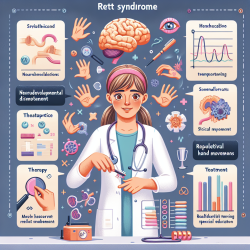In the world of special education and therapy services, the Ontario Infant Hearing Program (OIHP) serves as a beacon of excellence. This provincial initiative aims to identify infants born deaf or hard-of-hearing and provide early access to habilitation services. The research article, "The Role of the Audiologist and Family Support Worker in the Ontario Infant Hearing Program: A Team Approach," by Christine L. Brown and Sandra Mackenzie, outlines the significant roles that audiologists and family support workers play in this multidisciplinary program. For practitioners, understanding and implementing the outcomes of this research can lead to substantial improvements in service delivery and client outcomes.
The Power of Teamwork
The OIHP emphasizes a team approach, integrating the skills of audiologists and family support workers (FSWs) to provide comprehensive care. This collaboration ensures that infants receive timely and effective interventions, which are crucial for age-appropriate communication development.
Audiologist's Role
Audiologists in the OIHP are responsible for:
- Conducting diagnostic assessments using advanced techniques like tympanometry, DPOAE, and ABR.
- Providing unbiased information on hearing aids and cochlear implants.
- Fitting and managing hearing aids based on the Desired Sensation Level (DSL) prescriptive approach.
- Referring families to provincial home-visiting programs and specialized regional programs.
Family Support Worker's Role
FSWs provide crucial support by:
- Counseling families through the emotional journey of their child's diagnosis.
- Providing information on communication development options like Auditory-Verbal Therapy and American Sign Language.
- Assisting families with access to funding and subsidies for hearing aids and related services.
- Ensuring seamless care by coordinating with other service providers.
Lessons for Practitioners
Practitioners can enhance their skills by adopting the following strategies:
- Embrace a team approach: Collaborate closely with other professionals to provide holistic care.
- Provide unbiased information: Ensure families have access to all available communication options.
- Support emotional needs: Recognize and address the grief and emotional challenges families may face.
- Ensure seamless care: Coordinate with community partners to provide consistent and integrated services.
Encouraging Further Research
The success of the OIHP highlights the importance of interdisciplinary collaboration. Practitioners are encouraged to engage in further research to explore innovative approaches and improve service delivery. By staying informed and adopting evidence-based practices, professionals can significantly enhance the outcomes for infants with hearing impairments and their families.
To read the original research paper, please follow this link: The Role of the Audiologist and Family Support Worker in the Ontario Infant Hearing Program: A Team Approach.










